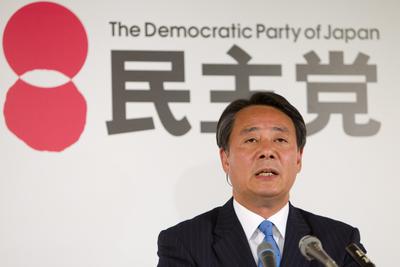The DPJ’s General Secretary, Goshi Hosono, has already tendered his resignation and taken full responsibility for the dismal election results as head of the party’s election strategy. Meanwhile, Banri Kaieda insists on retaining his leadership position to see through his aim of steering his party back toward electoral success. Despite Kaieda’s decision to stay on, the party is looking for somebody to blame for its loss. Naoto Kan, the DPJ prime minister who was in charge during the Fukushima disaster, has been singled out for the party’s poor performance. His decision to support an independent candidate in the Tokyo district without party approval has brought his position under fire. The leadership is debating whether or not to suspend Kan from the party for undermining the party line.
The real cause of the DPJ’s internal chaos is its failure to come to terms with deep public mistrust. Its time in office was tainted by a combination of blunders ranging from the party’s perceived lack of experience in dealing with foreign policy, its poor management of the Fukushima disaster and its inability to deliver on key policies such as its flagship Child Allowance. The July upper house election result shows the public continues to mistrust the party. In the campaign, it was clear that the DPJ has not developed a coherent political platform following its ouster from government in December 2012. The Social Democrats and Your Party presented equally weak policy platforms. It appears that the majority of Japan’s political opposition lack direction. There is no clear political alternative to the governing Liberal Democratic Party (LDP)–New Komeito bloc.
But despite the recent electoral losses of the DPJ, it appears that the public have not completely lost faith in Japan’s opposition. Many Japanese citizens desire a realistic alternative to the LDP-led government, with a recent poll showing that a significant number of Japanese citizens want a stronger opposition camp to provide a legitimate counterweight to the government’s agenda.
The current high approval ratings of the LDP and the Abe cabinet are based on the government’s successful economic strategy. But it is unclear whether this strategy will be successful or whether support can be sustained. The volatility of contemporary Japanese politics — where a party can win by a landslide but within three years almost face political annihilation, and prime ministers and political parties seem to have an average shelf-life of less than a year — suggests that a DPJ resurgence in the near future is a realistic prospect.
Any DPJ comeback would rely on two factors. First, the current government’s legitimacy rests solely on its economic strategy of ‘Abenomics’. Recent economic figures show signs that Japan could break out of its deflation cycle, but if ‘Abenomics’ fails to deliver Abe’s own leadership will come under threat. Any factional infighting in the LDP would damage public faith in the party and give the DPJ a chance to recover.
Second, voter turnout in July’s election was even lower than in the last upper house election in 2010, so the LDP’s landslide was not achieved on a wave of public enthusiasm. If the opposition can develop a coherent political platform it may be able to claw back its political credibility.
The DPJ presented no political vision at the last election. Instead, it fell back on its vague campaign message of emphasising peoples’ livelihoods, which failed to strike a chord with the Japanese public. But if it manages to bring together the liberal-left opposition and build a credible alternative to the LDP-led government it may be able to mount a comeback. This would require realistic and appealing policy proposals.
Japan’s opposition is mired by infighting. But if the DPJ can discipline itself the party may be able to avoid a complete political implosion and rebuild itself for a political comeback in the near future. The electoral volatility of modern Japanese party politics suggests that the DPJ should not be written off just yet.
Simon Hughes is a postgraduate student at the University of London.

